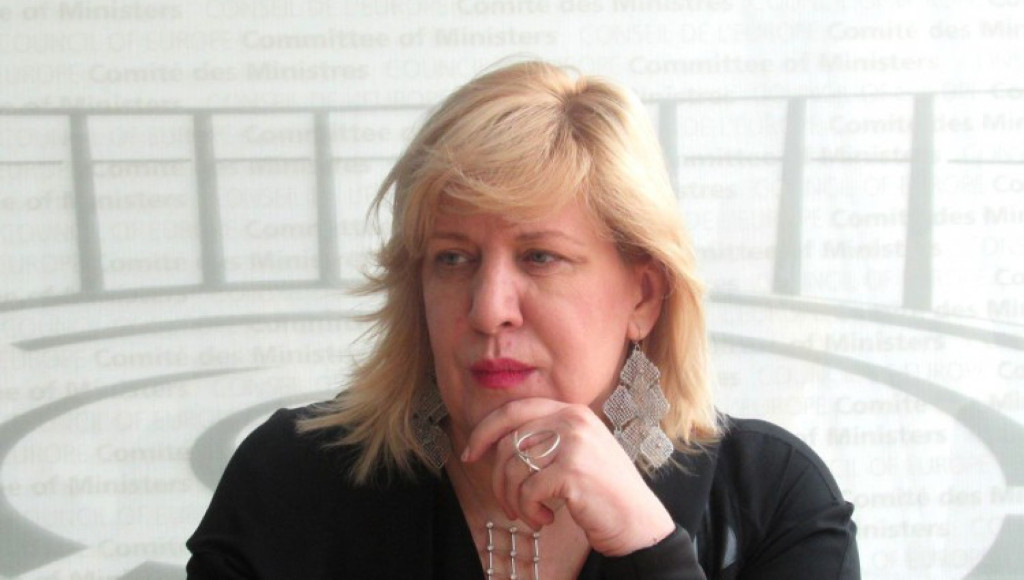Council of Europe (CoE) Commissioner for Human Rights Dunja Mijatović has published her written comments in the infringement proceedings in the case of prominent businessman and philanthropist Osman Kavala, in which she accused Turkish authorities of failing to “act in good faith,” Deutsche Welle Turkish service reported on Thursday.
Sixty-four-year-old civil society leader Kavala, who has been kept in jail since 2017 without conviction of any crime, is accused of financing 2013 anti-government protests and playing a role in a 2016 coup attempt. If convicted, he could be jailed for life without the possibility of parole.
Turkey refuses to release Kavala despite a binding judgment of the European Court of Human Rights (ECtHR), in December 2019 finding that his detention for allegedly directing and financing the Gezi Park protests of 2013 and for alleged involvement in the failed coup of July 2016 was in pursuance of an “ulterior motive,” that of silencing him as a human rights defender.
The CoE’s Committee of Ministers on Feb. 1 decided to take action against Turkey due to the philanthropist’s continued imprisonment and ordered that the case be submitted to the ECtHR for review, officially beginning an infringement procedure against Turkey.
In her comments, submitted on April 6 to the ECtHR, Mijatović stated that Turkish authorities had taken steps to circumvent Kavala’s right to liberty, having as a priority keeping him in detention and therefore not acting in good faith or in a manner compatible with the “conclusions and spirit” of the judgment.
Mijatović added that the authorities circumvented Kavala’s right to liberty by instituting new criminal investigations — by means of a new legal classification — in relation to facts previously considered insufficient to justify detention.
She was referring to the fact that although an İstanbul court acquitted Kavala in February 2020, saying there was “not enough concrete evidence” against him, a higher court overturned the ruling in January 2021. Before the ruling was reversed, Kavala had already been charged with espionage, preventing him from being released from prison at the time.
Mijatović further reminded that President Recep Tayyip Erdoğan immediately and openly criticized Kavala’s acquittal in 2020, by qualifying it as a “maneuver,” and that the three judges who acquitted the philanthropist were immediately subjected to disciplinary investigations.
“The Commissioner considers that repeated public statements by high-level officials against the applicant’s release and anticipating the expected outcome in the ongoing criminal proceedings against him do not only contravene the principle of presumption of innocence … but are a further confirmation that the applicant’s ongoing detention is motivated by the same ulterior purpose found by the Court, and that the authorities have not acted in good faith,” she noted.
Kavala appeared before a court on March 21 for the first time in months, only to have his case adjourned and his detention extended.
In October 2021 the ambassadors of 10 countries, including the US, Germany and France, demanded Kavala’s immediate release in line with the 2019 ECtHR ruling. President Erdoğan threatened to expel the envoys before backing down.

